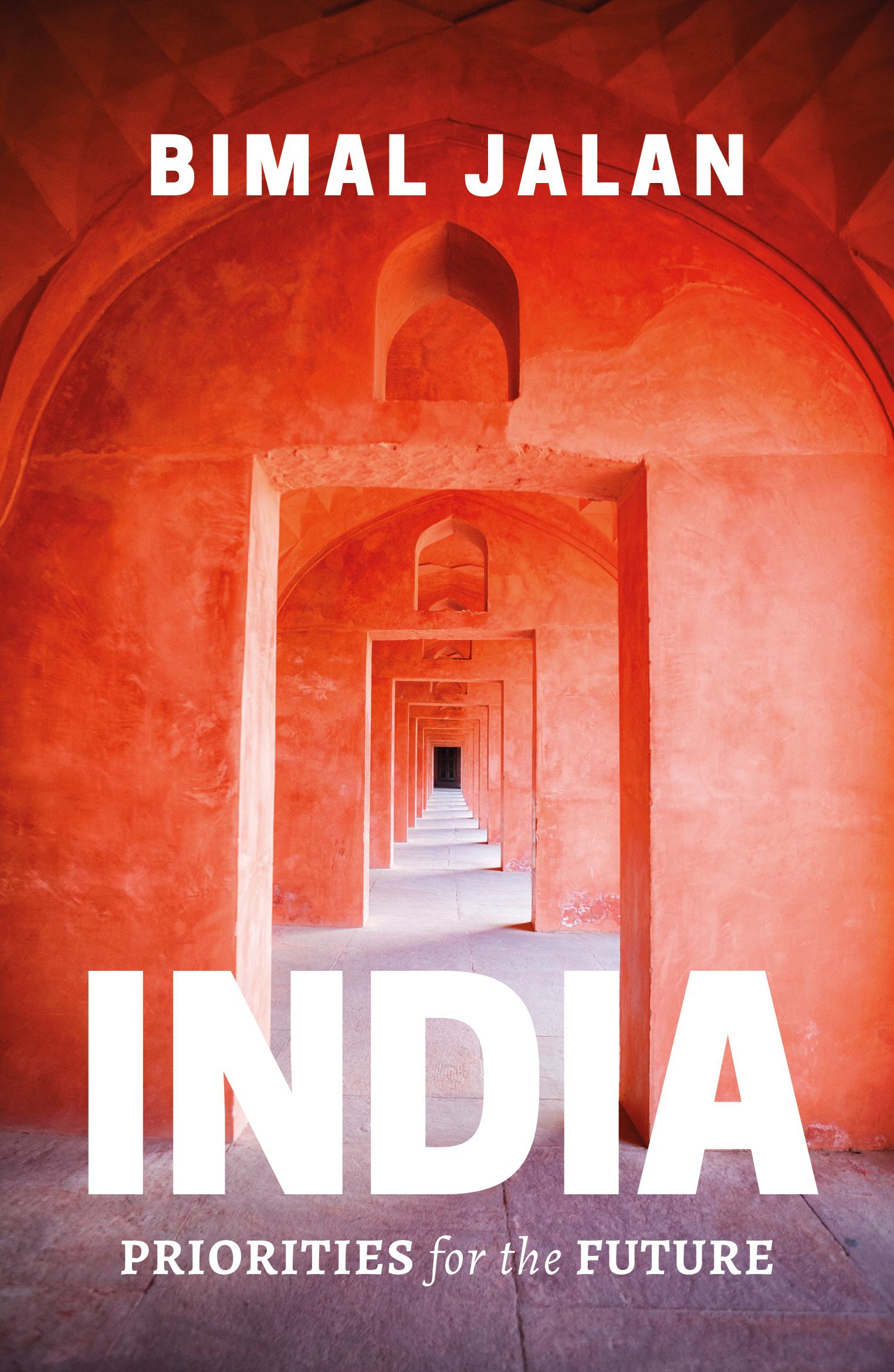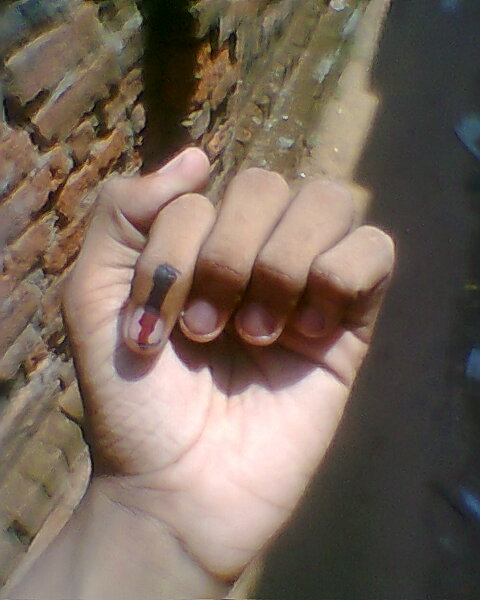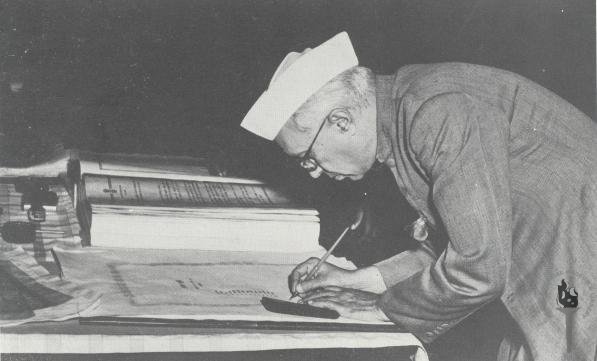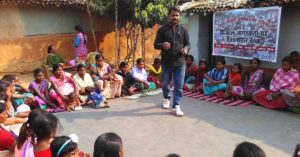Priorities for the Future: The Beauty of Indian Elections and What Must Change
Read an excerpt from Bimal Jalan's latest, "India : Priorities for the Future"

India’s last general elections, held in 2014, when over a million voters exercised their right to vote, was the largest democratic election ever held in the world. Indian general elections have also, by and large, been free and fair. All eligible voters, irrespective of caste, creed, religion, income or occupation, have equal rights. An autonomous Election Commission supervises the elections. It has the necessary powers to ensure that the right of voters to vote freely is respected in principle and in practice.
The judiciary is vigilant, and its verdict commands the full respect of all concerned,including the party and the government in power.

For all Indians, and others interested in democratic elections, it is an exhilarating feeling to see all candidates, including powerful ministers and the prime minister, campaigning from time to time for the people’s votes with the utmost humility and respect. Since 2014, India has also had the advantage of having a majority government in power for the first time in 25 years since 1989. The new government, at the highest level, has also announced a large package of reforms that it wishes to introduce in order to boost investors’ confidence and growth.
Some important matters that have been proposed to provide benefits to the people include the interstate Goods and Services Tax (GST), insurance and land reforms, the completion of existing public projects (for example, in the power sector or roads), the reduction of the fiscal deficit to budgeted levels and schemes like the Jan-Dhan Yojana. All these proposed economic reforms will certainly contribute to higher growth as and when implemented and will hopefully reduce poverty at an accelerated pace over time. Ultimately, the main task is to implement what has been promised and not wait for long.
The elections are truly the hour of triumph for India’s democratic traditions, which have set high standards for other countries to follow.

At the same time, as one reflects on what Indian democracy has been able to achieve for the people, apart from the right to vote, there is an unavoidable feeling of disappointment and unease. As soon as the elections are over and a new government takes office (of whatever complexion and colour), the government becomes a power unto itself. The people’s interests tend to be overtaken by the power of special interests and, in political scientist Mancur Olson’s famous term, ‘distributional coalitions’. These coalitions are generally more interested in influencing the distribution of wealth and income in their favour, rather than in the generation of additional output for the benefit of the public.
Ministers and their bureaucrats become authoritarian, self-centered and autocratic. They are no doubt subject to some checks and balances by Parliament and the judiciary but, by and large, they are able to do as they wish. Their accountability to the public is also more apparent than real—at least until the next elections. Thus, in the words of Pratap Bhanu Mehta, a well-known writer on law and governance in India, ‘The broad framework within which practices of popular authorisation can be carried out remain intact, but politics itself has become an area where norms exist only in their breach . . . The very mechanism, designed to secure the liberty, well-being and dignity of citizens, representative democracy, is routinely throwing up forces that threaten to undermine it; the very laws that are supposed to enshrine republican aspirations are incapable of commanding minimal respect, and their inaction subjects the entire political process to ridicule. The corruption, mediocrity, indiscipline, venality and lack of moral imagination of the political class, those essential agents of representation in any democracy, make them incapable of attending to the well-being of citizens’.
Ian Little’s distinction between the state and the government is crucial in explaining why the nationalist ideals of a state-directed development strategy as an essential component of political democracy did not achieve much. The powers of the state, enshrined in the Constitution, were exercised by the government in office. The government generally represented the interests of a political party (or a coalition of political parties). Political parties, in turn,represented the special interests of a section of the people rather than the country as a whole.
In theory, under the Constitution, the responsibility for the policies and actions of the government and its cabinet was ‘collective’.

However, the prime minister or the chief minister had unfettered discretion in appointing his or her cabinet in consultation with a few top leaders of the party or parties in power. As a result, ministers, once appointed, enjoyed complete powers in respect of the business of their respective ministries as long as they enjoyed the confidence of the leader of their party.
A question that continues to puzzle most observers of the Indian scene is: Why do the people of India, who have the right to vote freely and elect their own government, not exercise greater vigilance over the conduct of their elected representatives? Why do they continue to elect corrupt persons, several of them with criminal records and narrow interests? In several states, with a large number of seats in Parliament, and which have such a decisive role in the formation of the government, a sizeable proportion of the electorate continues to support leaders and parties with an abysmal record of service to the people and little commitment to the growth and development of their respective states. The answer to these questions perhaps really lies in the large incidence of illiteracy—particularly female illiteracy—in several states. According to available statistics, in some states, more than half the voters, and nearly two-thirds of the female voters, are illiterate. As a result, the local parties and political leaders are able to exploit caste, religious or regional factors to their own advantage.
This underscores the importance of implementing the country’s commitment to provide ‘education for all’ as a fundamental right. Literacy and education will not totally eliminate the importance of caste and religion in India, but it will certainly make the voters better informed and political parties more accountable.
Excerpted with permission from India: Priorities for the Future by Bimal Jalan, published by Penguin.
Like this story? Or have something to share?
Write to us: [email protected]
Connect with us on Facebook and Twitter.
NEW: Click here to get positive news on WhatsApp!
If you found our stories insightful, informative, or even just enjoyable, we invite you to consider making a voluntary payment to support the work we do at The Better India. Your contribution helps us continue producing quality content that educates, inspires, and drives positive change.
Choose one of the payment options below for your contribution-
By paying for the stories you value, you directly contribute to sustaining our efforts focused on making a difference in the world. Together, let's ensure that impactful stories continue to be told and shared, enriching lives and communities alike.
Thank you for your support. Here are some frequently asked questions you might find helpful to know why you are contributing?


This story made me
-
97
-
121
-
89
-
167














